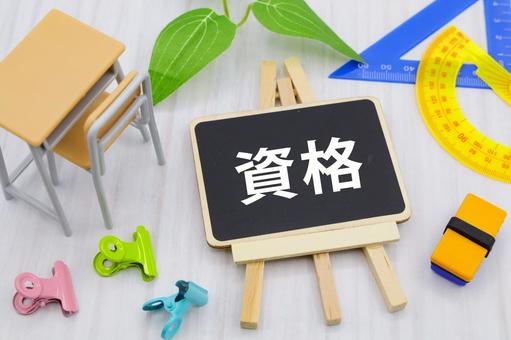2022.12.16
How to find a job in Japan

If you want to work for a Japanese company, you must be able to speak Japanese at a business level.
Business level refers to N2 or N1 level Japanese language proficiency (speaking, reading, writing).
I will explain in detail the level of Japanese that Japanese companies require from foreigners, and how you can work in Japan. Please read.
The Golden Root Exists

There is a quick and easy way to work in a Japanese company.
In conclusion, go to a language school with a student visa first, then go on to a four-year university, and get N1 so that you can work in Japan.
It’s easy to get a job offer because it’s very advantageous for job hunting.
This route has the highest employment rate, so to speak, it is the golden route.
There are three main reasons why the job offer rate is high if you go through the Golden Route.
① If you go to university, you will not only improve your conversation skills, but you will also be able to read and write at the N2 level.
② The school will introduce you to a job offer.
③ The company is actively hiring new graduates.
I will explain each one in detail.
① If you go to university, you will not only improve your conversation skills, but you will also be able to read, write and write at the N2 level.
As a matter of course, to work in Japan, there is an interview in Japanese.
Before the interview, there is a document screening process.
In order to pass the document screening, you must write your resume and job history in Japanese.
If you can’t write Japanese, you can’t even apply for a job at a company.
During the interview, you will need to convey your own experiences so far in Japanese and answer the questions asked by the interviewer correctly.
Most Japanese do not speak English.
If the application documents are written in English, the application will be rejected immediately because no one will read it.
There aren’t many Japanese who can speak English, so if you use English, you won’t be able to communicate much better with them.
If you enter a Japanese company, your superiors, co-workers, and business partners will all be Japanese, so if you can’t speak Japanese, you won’t be able to work in the first place.
Even if you translate your English resume into Japanese, it is meaningless if you do not have the speaking ability to convey it in Japanese.
But if you go on to university, you will be able to read even the most difficult kanji, because not only textbooks but also all documents are written in Japanese.
In order to write the application documents by yourself, you should be able to read and write at least the minimum level at a language school or university.
②The school will introduce you to a job offer.
When a company recruits new graduates, they post the job postings on the websites, or bring job postings to schools.
In other words, there are many job openings for new graduates at the school.
The school has not only homeroom teachers, but also career guidance teachers, so you can always ask questions about jobs you want to apply for.
In addition, the teacher will contact the recruiting department of the company, and will help you practice interviews.
Of course, there are more job openings on the recruitment website, and those conditions may be better, but even if you apply by yourself without teacher’s help, you won’t be able to get a job offer easily.
So, you can get job hunting while getting support from your teacher at school, so the job offer rate will be much higher.
③The company is actively hiring new graduates.
The company recruits 20 to 100 new graduates every year.
They are actively recruiting new graduates who are young, talented, and capable of leading the company in the future.
The company has a quota of hiring 30 new graduates this year.
On the other hand, in the case of mid-career recruitment, there is a shortage of recruits and vacancies.
Foreigners who are not native speakers of Japanese have language barriers, and there are cases where it is difficult to be counted as an immediate asset.
The hurdles for mid-career hires are quite high because Japanese people also apply for that position you applied for, but in the case of hiring new graduates, everyone is at the same level, so you have a chance to get a job offer.
required Japanese level

In fact, most companies will not allow you to apply unless you have JLPT N2 or higher qualifications.
Strictly speaking, the application qualifications on the job posting say that you must have JLPT N2 certification .
The following table shows the document screening pass rate when a foreigner applies to 100 Japanese companies.
Candidates who pass N1 will proceed to interviews at 47 companies.
Candidates who pass N2:will proceed to interviews at 40 companies.
Candidates who pass N3: The passing rate has dropped considerably, and will proceed to interviews with only 6 companies. If 100 companies are accepted, 94 companies will be rejected at the time of document screening.
In the case of N4-N5: Unfortunately, there are 0 people who can proceed to interviews.
In other words, if you don’t have N2, you can’t even proceed to the interview.
The reality is that if you have a JLPT N2, you will not be able to meet the interviewer.
Of course, if an overseas student project requires English, they may be hired at N3 level, and even if they have N1, they may not be hired.
JLPT is a must-have item for working in Japan.
It’s okay if you don’t have JLPT qualifications

Even if you don’t have any qualifications, you may be able to apply or proceed to an interview if you have good conversational ability or N2 level reading and writing.
If you don’t have the JLPT, we will tell you in detail what level of Japanese proficiency is required.
It doesn’t matter if you can do the following things.
①Can convey your experiences and skills you have in Japanese
②Can write and read e-mails in Japanese.
③Ability to listen and understand Japanese for meetings, etc.
I will also explain this in detail.
①Can convey your experiences and skills you have in Japanese
In interviews, etc., it is necessary to convey your past experiences to the interviewer.
Even if you don’t have N2, it’s not a problem as long as you can explain using words that are equivalent to N2.
It’s okay to make a few grammatical mistakes, so try to use some business Japanese you know.
For example,
あなたが言ったように=あなたが仰ったように
一生けん命働きます=貢献します
みんなに知らせます=周知させます
Etc.
②Can write and read e-mails in Japanese.
All communication at Japanese companies is in Japanese.
You can make phone calls in Japanese or write e-mails in Japanese.
In particular, they use email a lot.
Make it clear what you want to convey in your email, and keep it as short as possible.
If you use the translator every time, it will take time, and the sentences will be translated as if the nuance is different.
So if you can read kanji at N2 level, you should be fine.
③ Ability to listen and understand Japanese for meetings, etc.
Meetings at Japanese companies are limited in time, so everyone speaks quickly.
Also, since they will be using business Japanese at the N1 level and above, you will need a listening skill that allows you to understand them.
All of the above three things can be learned at the university, so to speak, you can get them using the golden route.
So if you want to work in Japan, definitely use this golden route.
What if I can’t go to University?

When coming to Japan, it is best way to graduate from university with a students visa rather than suddenly looking for a job, but there are many people who cannot go to university. .
For such people, I will teach you some tips to make your job hunting successful without using the golden route.
①Use a job change agent for foreigners only.
Career change agents have a lot of job openings for companies that want to hire foreigners.
Not only do they make your resume in Japanese, agents will directly appeal skills and experience to companies on behalf of applicants.
Of course, you can also take interview preparation lessons, so the rate of job offers will be higher than if you go through job hunting on your own.
②Find a job at Hello Work.
Hello Work has many job openings.
From easy and simple light work such as factory work, to wide range of work such as office work.
What is Hello Work?
It is a service that introduces you to jobs for free, just like a career change agent.They have offices all over Japan, and you can consult directly with them, or you can search for job vacancies online.
However, you will need to create your resume by yourself, and there are no Japanese language lessons.
Of course, you have to be able to communicate with companies on my own, so a high level of Japanese is necessary.
③ Get support from the government.
There is support for foreigners at the city hall in the town where you live.
There, you can consult with them about finding a job, or ask them to introduce you to their jobs.
Similar to Hello Work, they will introduce you to jobs, but you will need to prepare the application documents yourself.
Summary

It is extremely difficult to find a job in Japan and by yourself.
However, if you use the golden route introduced in this article, you can easily find a job.
If you are looking for a job, ask your university to introduce you to a job, or ask a career change agent or Hello Work to introduce you to a job.
Of course, it is also a good idea to find a job on a recruitment site such as Indeed.
It’s important to look for a job, but please get for JLPT N1 or N2 first.

